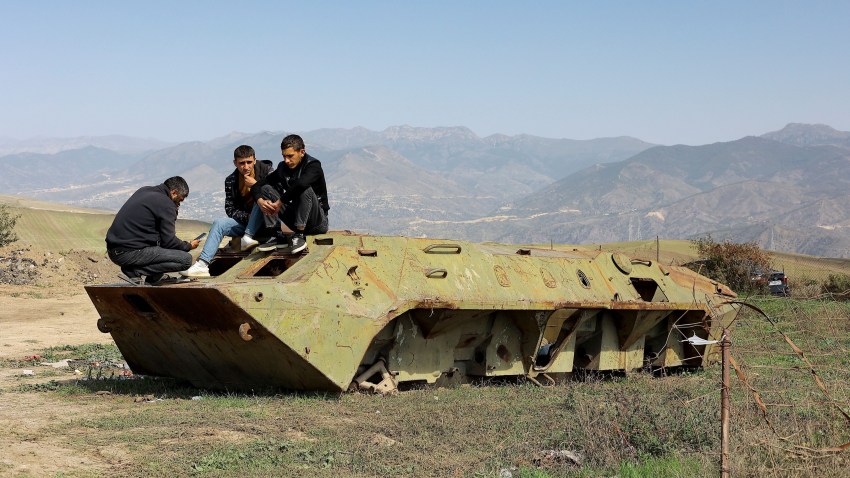In a lightning strike on Sept. 19, Azerbaijan finally extinguished more than 30 years of de facto self-governance by ethnic Armenians in the embattled enclave of Nagorno-Karabakh. Framing its military assault as a “counterterror operation,” the Azerbaijani army overwhelmed Karabakh Armenian forces within 24 hours. The terms of the subsequent cease-fire included the disbanding of all local Armenian armed forces and the dissolution of the de facto institutions of the Nagorno-Karabakh Republic, the unrecognized entity that had declared independence from Azerbaijan on Jan. 6, 1992.
Three days later, Azerbaijan reopened the Lachin Corridor, the sole road connecting the enclave with Armenia, which it had sealed off to civilian traffic nine months before. Over the following six days, more than 100,000 Karabakh Armenians, comprising the entire Armenian population of Karabakh, poured through the corridor to become refugees in Armenia. Only a handful of the elderly and infirm remained as the region was reincorporated into the Azerbaijani state.
The exodus of ethnic Armenians brings their millennial presence in the eastern reaches of the Lesser Caucasus mountains to an end. Karabakh, or Artsakh as many Armenians know it, is fabled in Armenian culture as a bastion of survival during long centuries when no Armenian state existed. With its landscapes dotted with iconic Armenian churches and monasteries, Karabakh had come to symbolize a much greater array of Armenian ideals than just the claim to self-determination of its population. Its loss is perceived as a catastrophe on a level unseen since the era of the Armenian Genocide during World War I and another excruciating Armenian reckoning with the fickle calculations of great powers.

